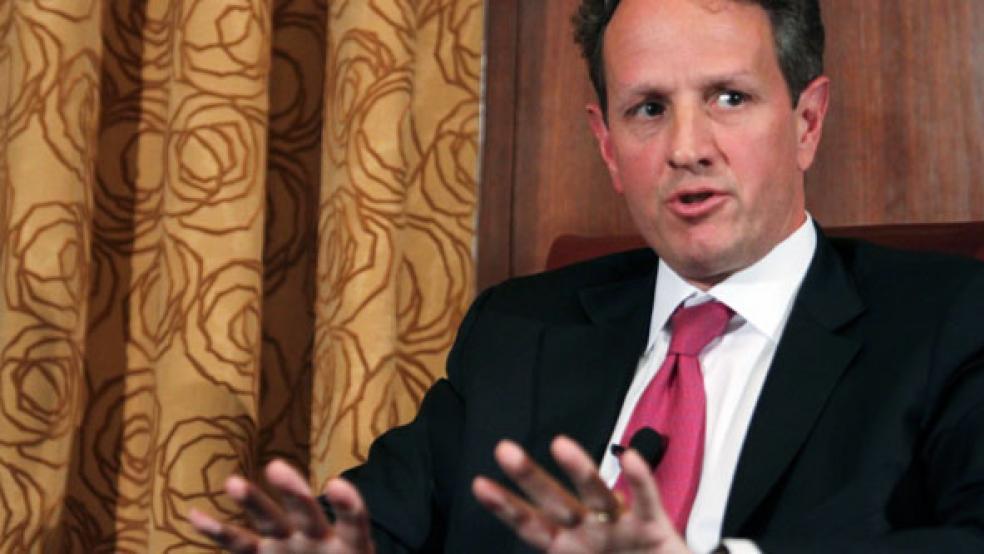Treasury Secretary Tim Geithner on Wednesday predicted Congress and the White House will reach a broad agreement by mid-summer that links lifting the debt ceiling to about $1 trillion in deficit reduction with a plan for achieving another $3 trillion in cuts over the next decade.
To counter skeptics who say promises of future debt reductions will never be achieved, he said the final package will include a mix of either targets or debt caps, which will be enforced by an as yet unspecified enforcement mechanism. The plan could include mandatory across-the-board spending cuts.
The odds of a deal are “quite good because you now have people agreeing on the magnitude” of the deficit reduction goal,” he told an early morning forum sponsored Politico, which covers politics in the nation’s capital. There is also “a recognition that you don’t have to do it all at once.”
Bi-partisan discussions led by Vice President Joe Biden will be contentious, but have a common a benchmark for deficit reduction, he said, citing plans ranging from the House Republican budget to the Simpson-Bowles fiscal commission to the president’s updated budget goals announced in April--all of which seek about $4 trillion in deficit reduction over the next decade. “When you see that broad a consensus about what needs to be done, the only debate is the means to achieve that.”
Even as he expressed confidence a debt ceiling bill will pass, Geithner said he didn’t have a back-up plan, and implied Congress would be violating its constitutional duties if it failed to pass a bill before the short-term measures taken to avoid default run out in early August.
Pulling a pocket copy of the constitution out of his jacket pocket, the 49-year-old official read aloud the fourth paragraph of the 14th amendment, which was one of three major constitutional changes instituted after the Civil War, and the one usually associated with protecting individual rights. “The validity of the public debt of the United States, authorized by law, including debts incurred for payment of pensions and bounties for services in suppressing insurrection or rebellion, shall not be questioned,” he read.
Defaulting on the debt would violate that clause, he claimed, because those debts are obligations already incurred and spent by previous Congresses. Using the default card “is not a credible negotiating strategy,” he said.
He also dismissed concerns that financial markets may tumble if Republicans carry out their promise to vote down a bill, perhaps next week, that calls for lifting the debt ceiling without any long-term deficit reduction. Will markets ignore that, he was asked. “I think they will,” he said. “But if you take too long, you may see that confidence erode.”





